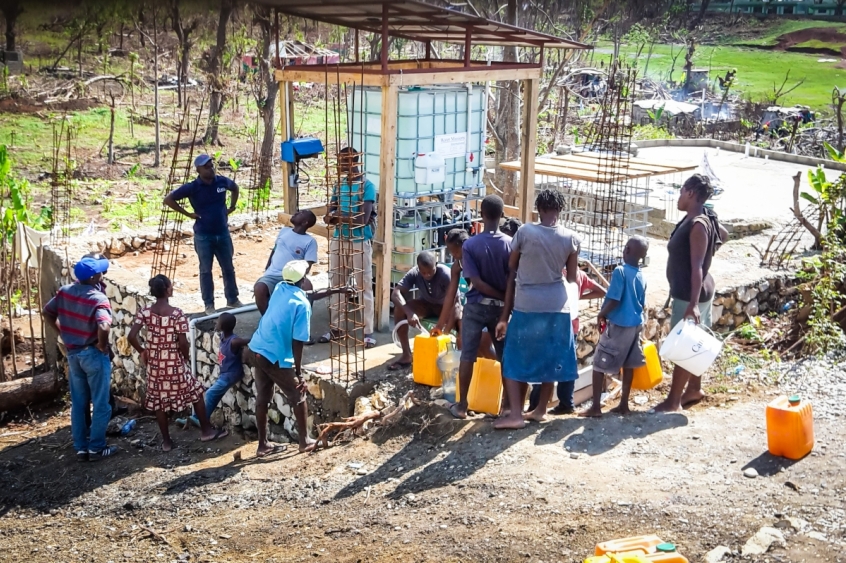
Three months after Hurricane Matthew devastated Haiti, the Caribbean island is slowly making a recovery.
The hurricane killed more than 1,000 people and hundreds of thousands were displaced – now forced to live in temporary shelters such as schools.
In total,1.4 million people have been affected leaving many without access to essentials such as water and adequate hygiene and sanitation facilities.
Catholic international development charity CAFOD has been supporting sister agency Catholic Relief Services (CRS) with its hygiene and sanitation emergency response in two of the most affected areas – Sud and Grande Anse – where up to 70 per cent of the population are in need of humanitarian aid.
In addition to providing access to clean water and promoting safe hygiene practices, CAFOD is also supporting CRS to repair clean water sources such as wells and water pumps, as well as building latrines for households, schools and clinics.
Hurricane Matthew devastated some of Haiti's remotest areas in the Sud and Grande Anse departments. People rely on agriculture and fishing for their livelihoods and the lack of clean water is putting their lives at risk.
CAFOD's emergency response officer, Robert Cruickshank, recently visited Haiti in order to support CRS's emergency WASH response. He said: "There are few opportunities to make a living; to suffer the storm damage that some families have sustained, is a hard thing to recover from.
"These are remote communities that depend on agriculture and fishing; they've had the 'guts' ripped out of them."
Hygiene promotion is vital to stopping the spread of deadly diseases. According to the latest UN figures, more than 2,000 cases of cholera have already been recorded in Grand Anse and in Department Sud. A similar number (1,806) of Cholera cases are suspected.
"When you've been stripped of the basics of life, and you are only left with debris around you, it is incredibly difficult to lead an even moderately hygienic life," said Cruickshank.
"Cholera can kill you quickly – losing fluids from your body is followed swiftly by organ failure if you are not treated promptly. Although easily treatable, if not contained it spreads very quickly attacking the strong as well as the weak."
He continued: "The country was trying to bring cholera under control after the earthquake in 2010; there is now an upsurge in cholera amongst communities since Hurricane Matthew and the challenge is to bring it under control and have proper treatment in place."
Please continue to pray for the people of Haiti.
Kemi Bamgbose works for CAFOD, a Catholic international development charity.













